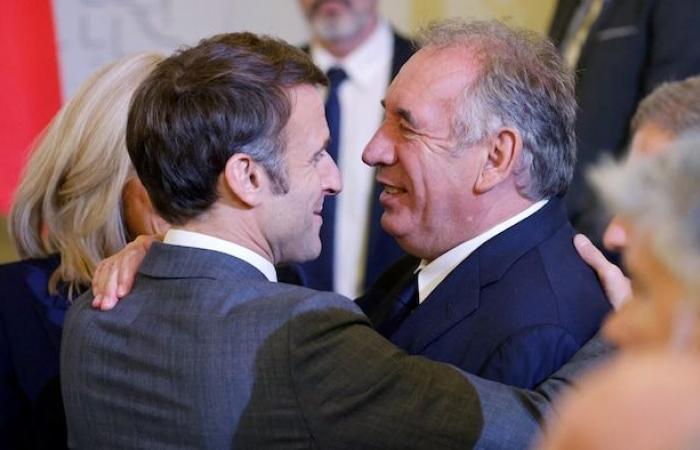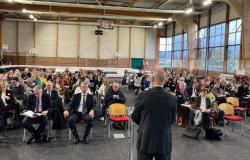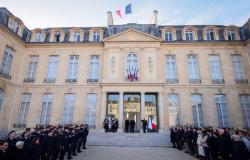
Despite signs of an imminent announcement, the composition of the French government should not be known until Monday or Tuesday, after a day of intense negotiations and exchanges between Prime Minister François Bayrou and President Emmanuel Macron.
The government will not be announced on Sunday evening, assuredAFP the president's entourage without specifying whether it will be announced on Monday – a day of national mourning for the French archipelago of Mayotte, in the Indian Ocean, after the devastating passage of Cyclone Chido – or on Tuesday, December 24.
The centrist François Bayrou, appointed on December 13, said he wanted to make appointments before Christmas at the latest.
He is making final adjustments
said his entourage, while Mr. Macron returned Sunday morning from a tour which took him to Brussels, the French archipelago of Mayotte and East Africa.
The two heads of the executive spoke on the telephone early Sunday evening, their third exchange of the day. A meeting planned at the Élysée ultimately did not take place.
It's moving forward […]the structuring of the major ministerial centers is fixed
assured Saturday evening Marc Fesneau, president of the deputies of Mr. Bayrou's party, the MoDem. He confirmed that the full government list should be presented in one go
et before Christmas
.
Open in full screen mode
François Bayrou (right) is a close ally of French President Emmanuel Macron. (Archive photo)
Photo : Reuters
François Bayrou, 73, was appointed by Emmanuel Macron after lengthy consultations to find a successor to conservative Michel Barnier, whose minority government was overthrown on December 4 by left and far-right deputies after just three months in office.
Mr. Bayrou is the sixth head of government since the first election of Emmanuel Macron, in 2017, and the fourth in 2024, an instability that France had not experienced for decades.
An announcement on Sunday?
The new centrist prime minister must navigate the fragmented political scene resulting from the early legislative elections organized after the surprise dissolution of the National Assembly by Mr. Macron in June. The hemicycle is fractured into three blocks (left alliance; Macronists and centrists; far right); none has an absolute majority.
Mr. Bayrou wants to form a team that is tight and as open as possible. He wants it to include significant personalities, from the left as well as the right and the center, in order to respond to the emergencies facing the country, particularly in budgetary matters.
Work to do
Mr. Bayrou's first week in Matignon was especially marked by the barrage of criticism over his presence on the municipal council of Pau, a town in the southwest of which he intends to remain mayor, during the crisis in Mayotte.
He has a historically low popularity rating for taking office, with 66% of French people saying they are dissatisfied, according to a barometer published on Sunday.
Among the names mentioned for his government are those of the former Prime Minister Élisabeth Borne or the former Minister of the Interior Gérald Darmanin. Among those leaving, Catherine Vautrin (Territories), Rachida Dati (Culture) and Sébastien Lecornu (Armies) should remain, probably in the same portfolios.
On the left, former socialist minister François Rebsamen, 73, announced that he is ready
to join the government, touting his relationship of trust
for a long time with François Bayrou.
However, almost nothing filters out other personalities, particularly from the left.
The Socialist Party formally refused to participate in the government and its leader, Olivier Faure, left Matignon disappointed on Thursday, saying he dismayed at the poverty of what [a été] propose
. He did not rule out censoring the new prime minister.
François Bayrou accepted the principle of opening a reflection to review the highly contested reform which raised the retirement age to 64 years. However, without suspension of this reform, the socialists consider the gesture insufficient.
Saturday evening, the leader of the deputies of the Les Républicains (LR) party, Laurent Wauquiez, confirmed to his troops that he was moving towards the participation of this right-wing formation in the government, without participating himself. Mr. Bayrou announced his intention to maintain the very right-wing Minister of the Interior Bruno Retailleau.





